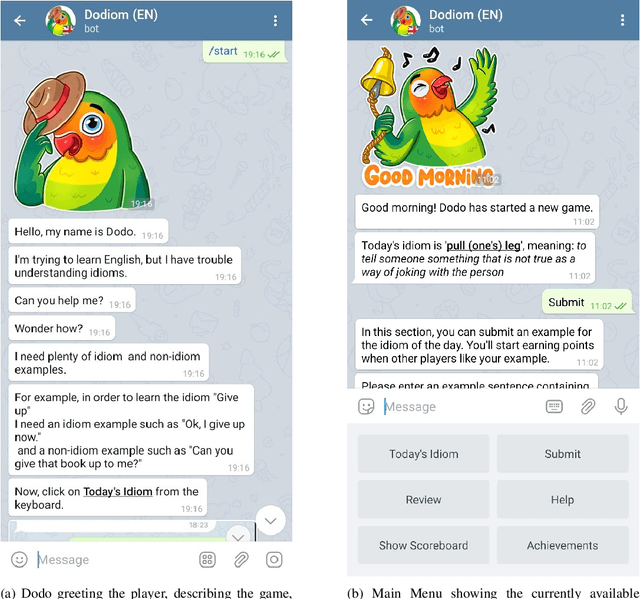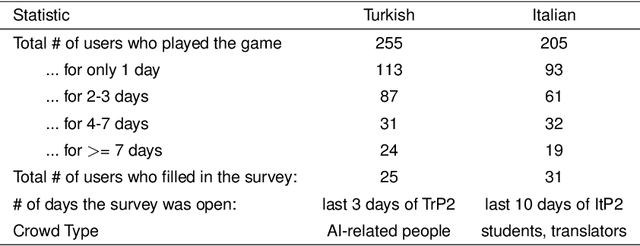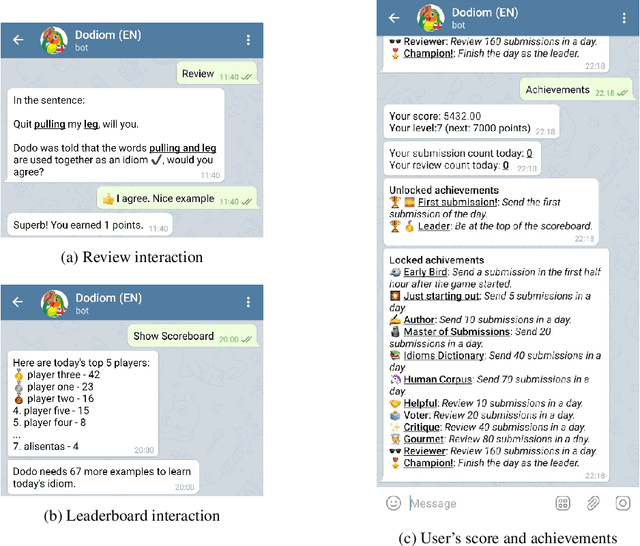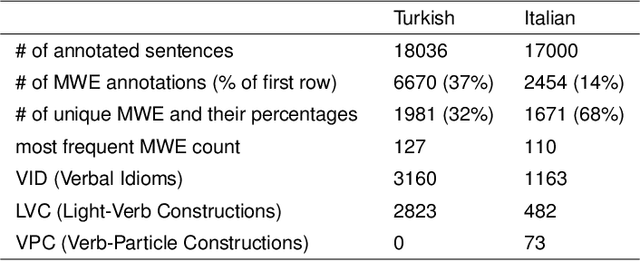Gülşen Eryiğit
ITUNLP at SemEval-2025 Task 8: Question-Answering over Tabular Data: A Zero-Shot Approach using LLM-Driven Code Generation
Aug 01, 2025Abstract:This paper presents our system for SemEval-2025 Task 8: DataBench, Question-Answering over Tabular Data. The primary objective of this task is to perform question answering on given tabular datasets from diverse domains under two subtasks: DataBench QA (Subtask I) and DataBench Lite QA (Subtask II). To tackle both subtasks, we developed a zero-shot solution with a particular emphasis on leveraging Large Language Model (LLM)-based code generation. Specifically, we propose a Python code generation framework utilizing state-of-the-art open-source LLMs to generate executable Pandas code via optimized prompting strategies. Our experiments reveal that different LLMs exhibit varying levels of effectiveness in Python code generation. Additionally, results show that Python code generation achieves superior performance in tabular question answering compared to alternative approaches. Although our ranking among zero-shot systems is unknown at the time of this paper's submission, our system achieved eighth place in Subtask I and sixth place in Subtask~II among the 30 systems that outperformed the baseline in the open-source models category.
Citation Recommendation on Scholarly Legal Articles
Nov 10, 2023Abstract:Citation recommendation is the task of finding appropriate citations based on a given piece of text. The proposed datasets for this task consist mainly of several scientific fields, lacking some core ones, such as law. Furthermore, citation recommendation is used within the legal domain to identify supporting arguments, utilizing non-scholarly legal articles. In order to alleviate the limitations of existing studies, we gather the first scholarly legal dataset for the task of citation recommendation. Also, we conduct experiments with state-of-the-art models and compare their performance on this dataset. The study suggests that, while BM25 is a strong benchmark for the legal citation recommendation task, the most effective method involves implementing a two-step process that entails pre-fetching with BM25+, followed by re-ranking with SciNCL, which enhances the performance of the baseline from 0.26 to 0.30 MAP@10. Moreover, fine-tuning leads to considerable performance increases in pre-trained models, which shows the importance of including legal articles in the training data of these models.
Gamified Crowdsourcing for Idiom Corpora Construction
Feb 01, 2021



Abstract:Learning idiomatic expressions is seen as one of the most challenging stages in second language learning because of their unpredictable meaning. A similar situation holds for their identification within natural language processing applications such as machine translation and parsing. The lack of high-quality usage samples exacerbates this challenge not only for humans but also for artificial intelligence systems. This article introduces a gamified crowdsourcing approach for collecting language learning materials for idiomatic expressions; a messaging bot is designed as an asynchronous multiplayer game for native speakers who compete with each other while providing idiomatic and nonidiomatic usage examples and rating other players' entries. As opposed to classical crowdprocessing annotation efforts in the field, for the first time in the literature, a crowdcreating & crowdrating approach is implemented and tested for idiom corpora construction. The approach is language independent and evaluated on two languages in comparison to traditional data preparation techniques in the field. The reaction of the crowd is monitored under different motivational means (namely, gamification affordances and monetary rewards). The results reveal that the proposed approach is powerful in collecting the targeted materials, and although being an explicit crowdsourcing approach, it is found entertaining and useful by the crowd. The approach has been shown to have the potential to speed up the construction of idiom corpora for different natural languages to be used as second language learning material, training data for supervised idiom identification systems, or samples for lexicographic studies.
 Add to Chrome
Add to Chrome Add to Firefox
Add to Firefox Add to Edge
Add to Edge